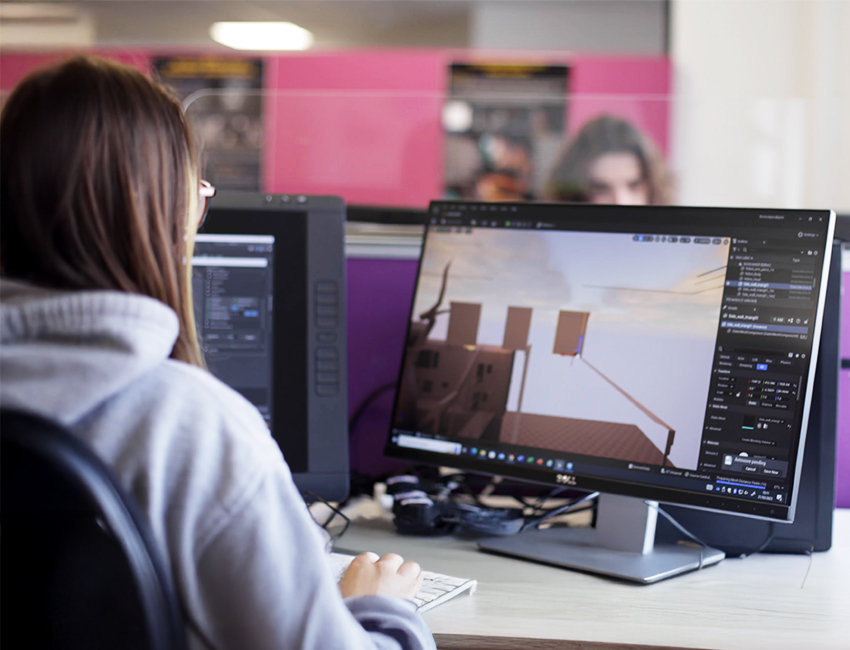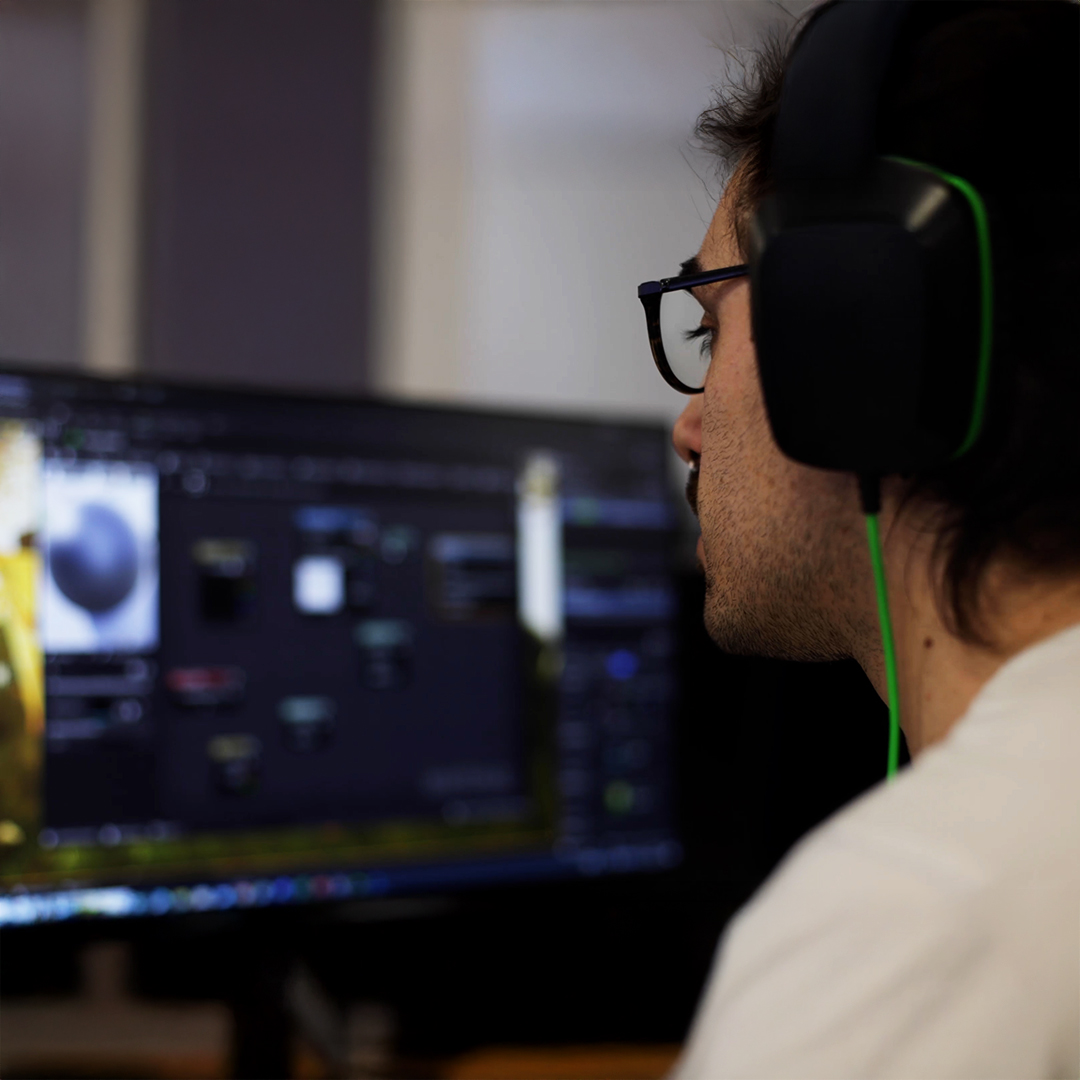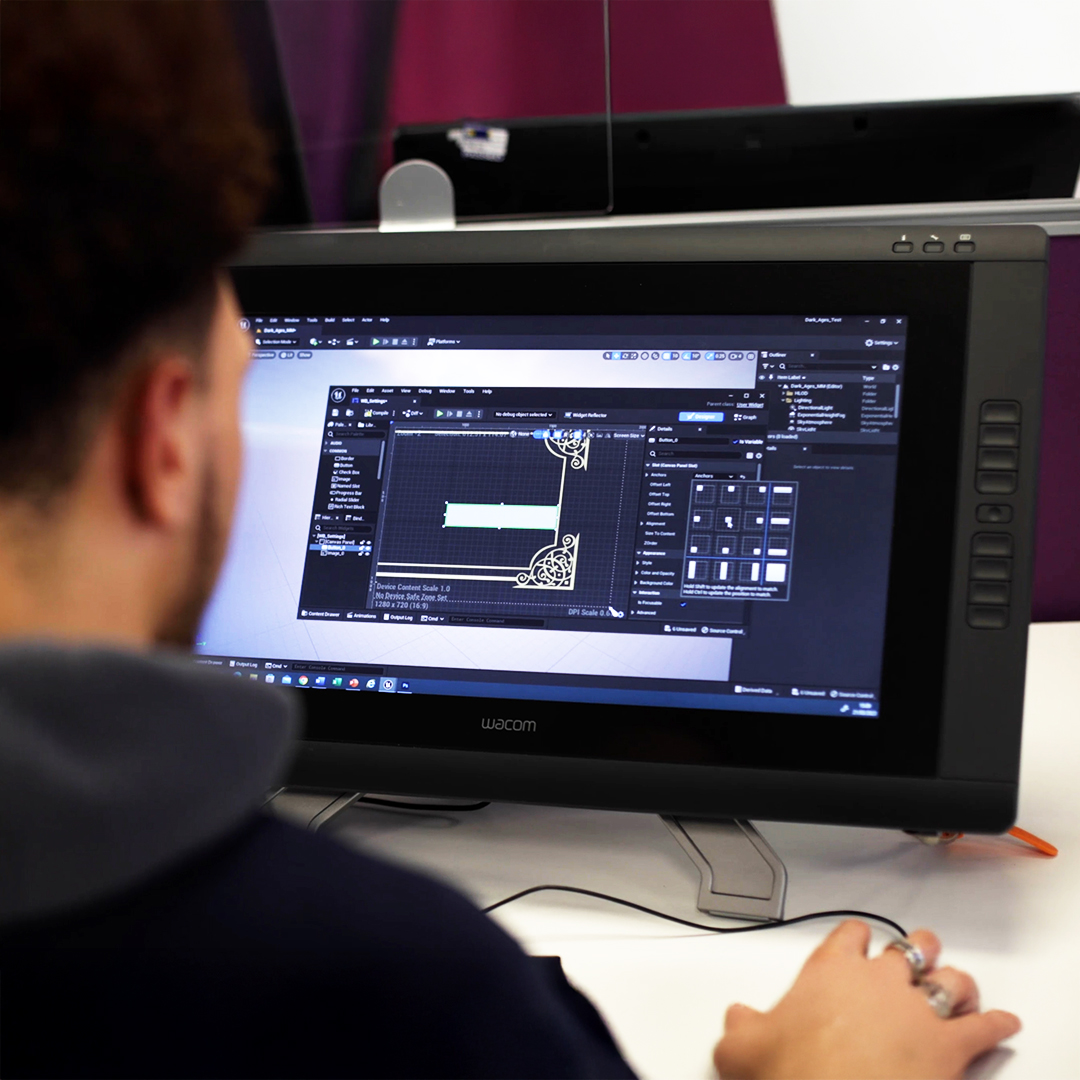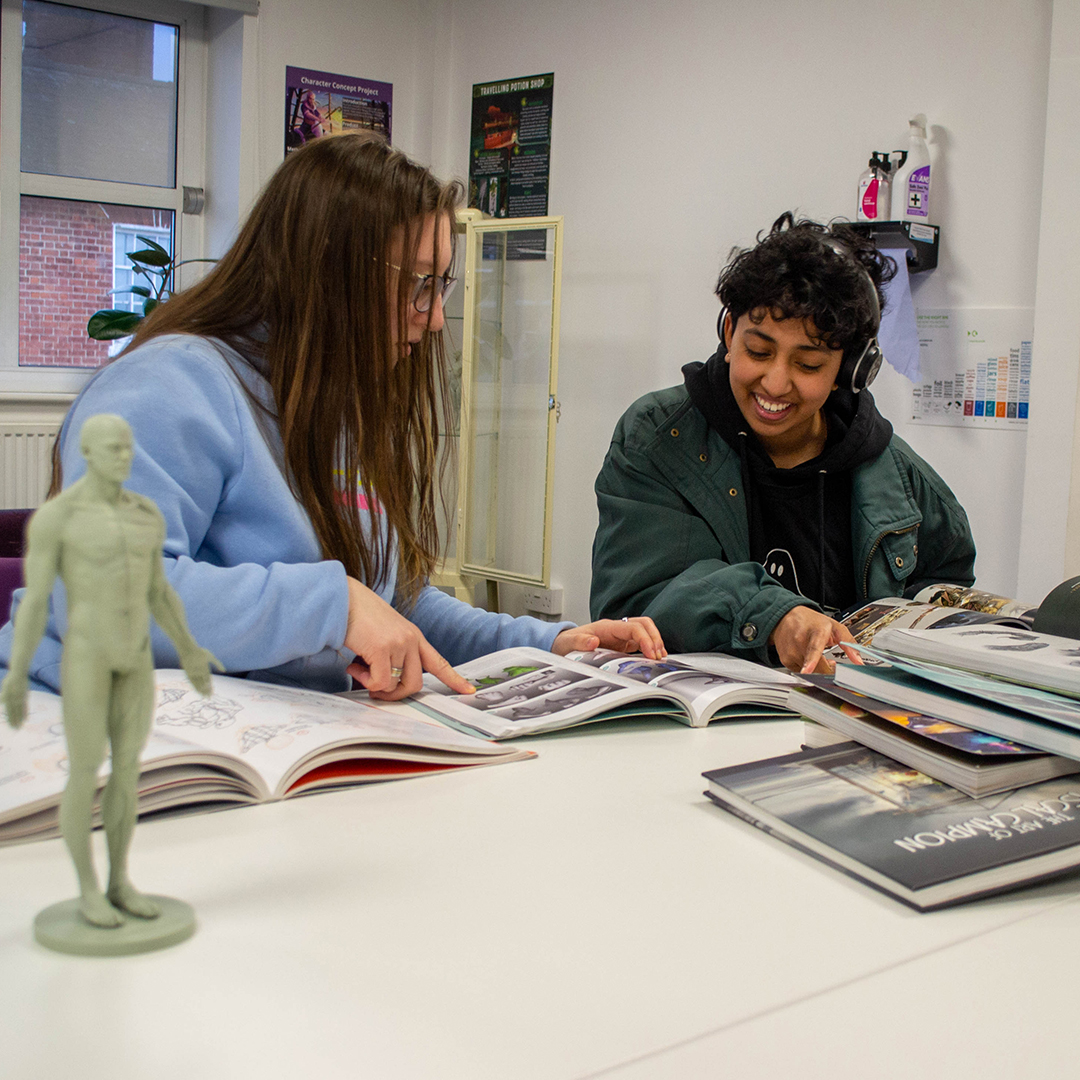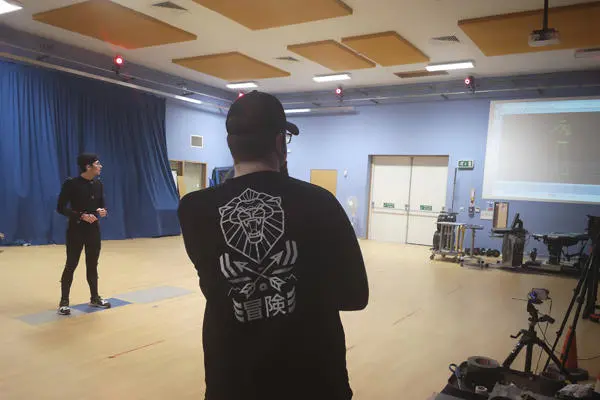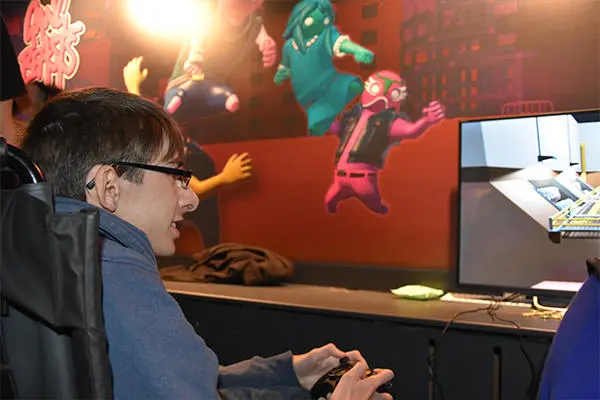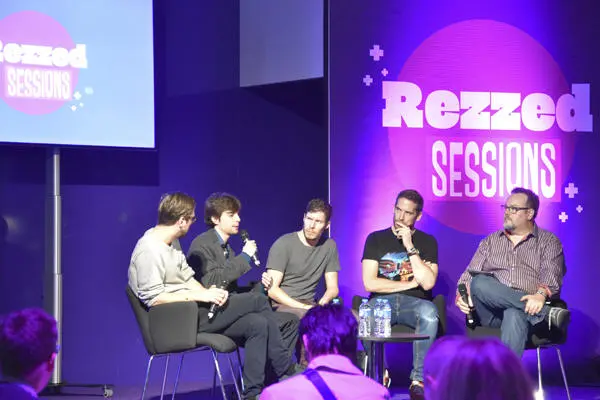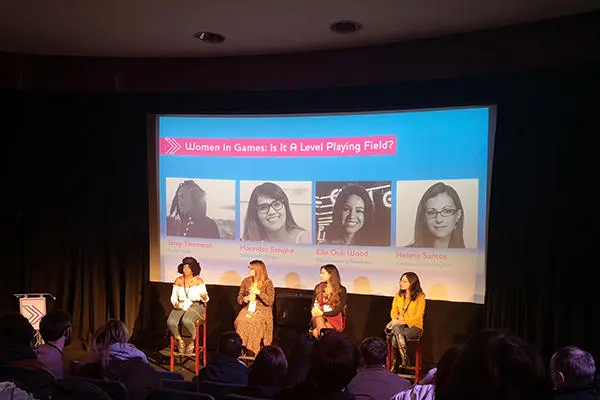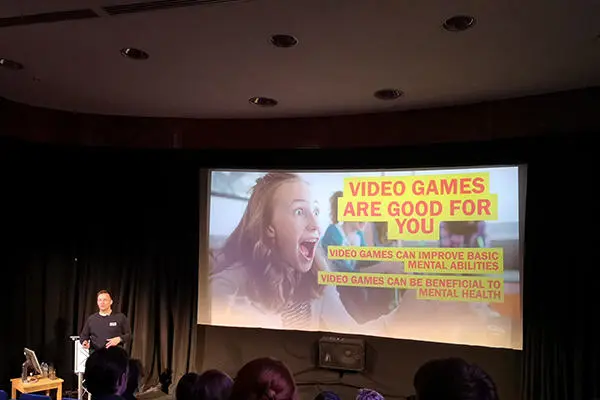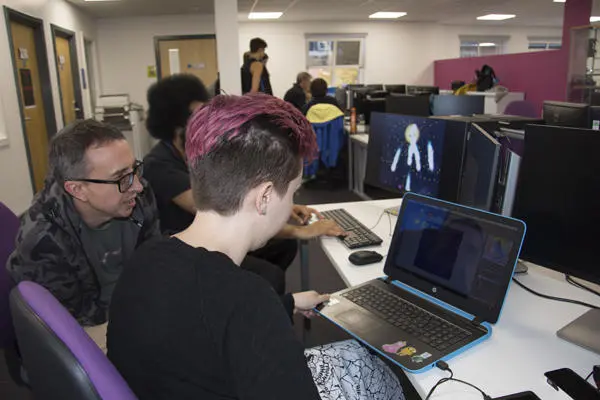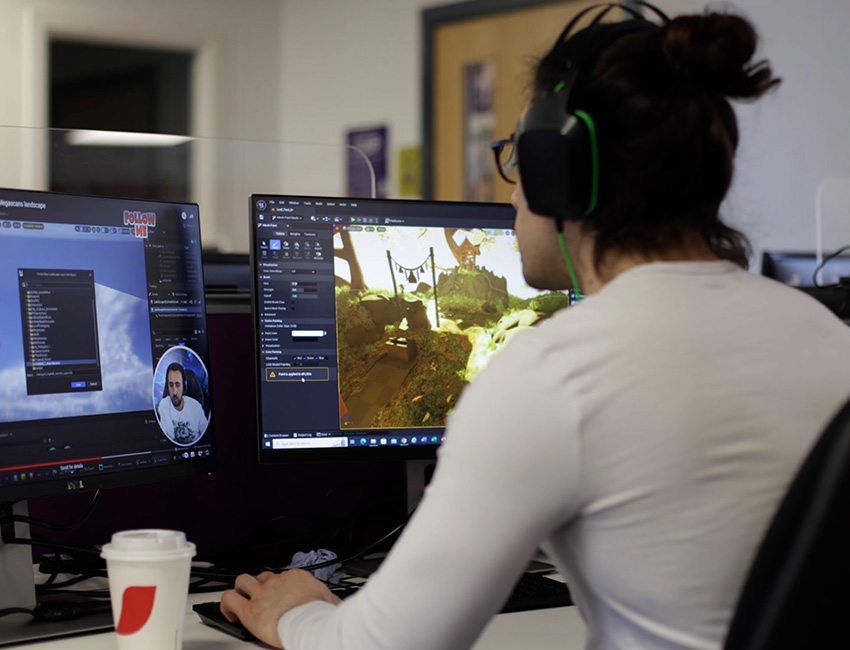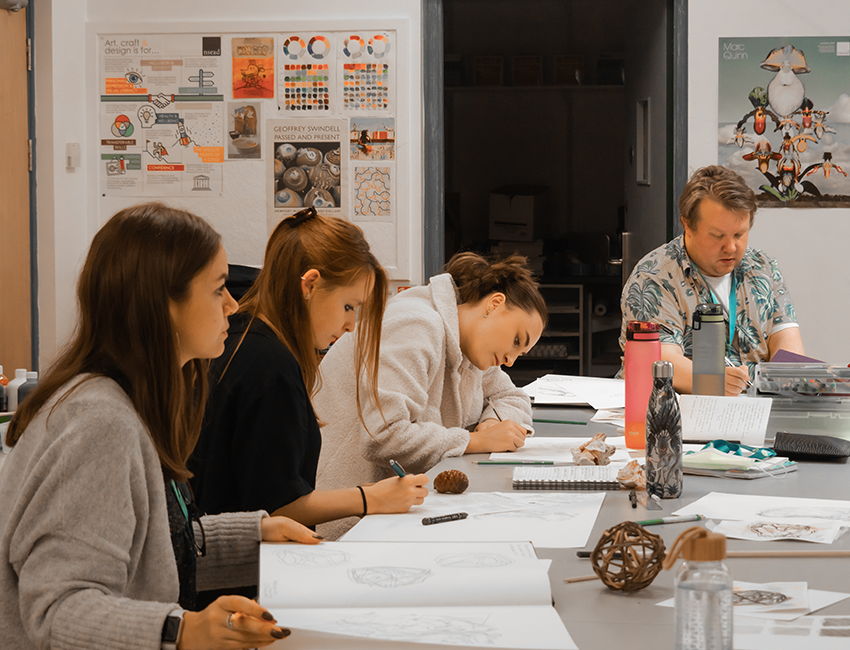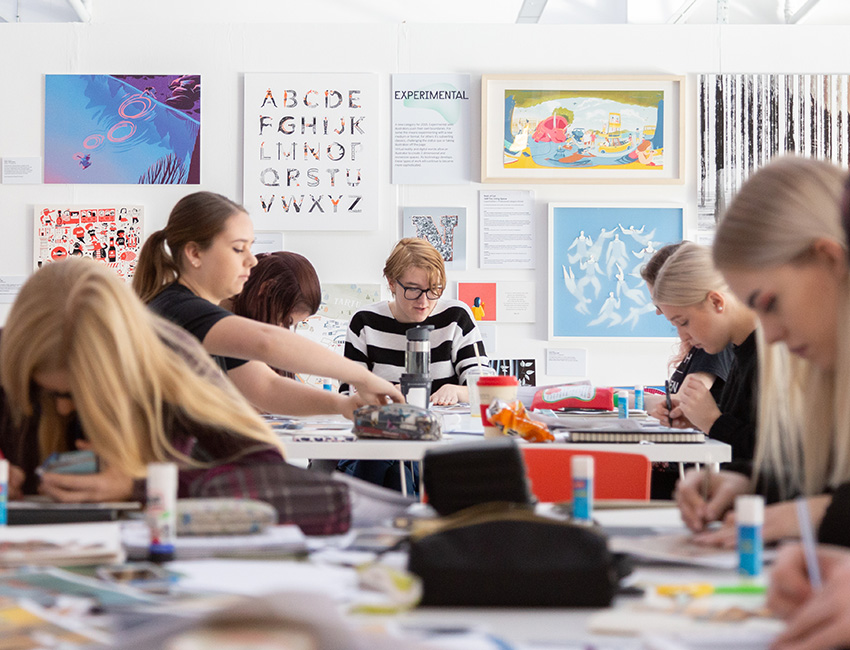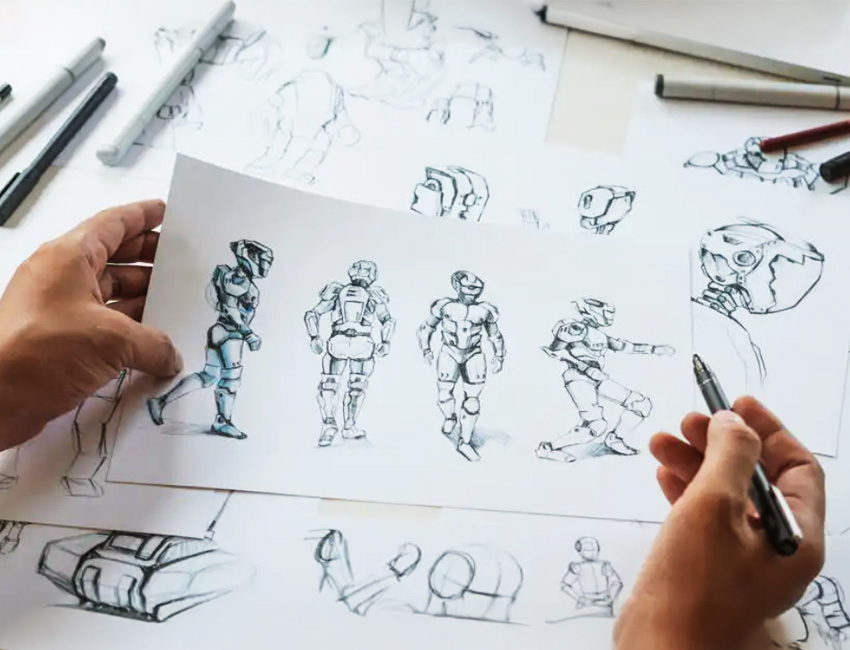Whether you're interested in character creation, immersive environments, or concept art, you will become a visual storyteller, getting the opportunity to experiment and find your artistic voice. Studio practice, industry tools, and creative challenges will shape your skills for a wide range of careers in the games industry and beyond.
of students said the course has developed the knowledge and skills they think they will need for the future
of students were positive about the support provided by teaching staff
University of the Year finalist
Recognised for our graduate success, we’re shortlisted for University of the Year in the Times Higher Education Awards 2025.
Overview
Game Art at Worcester blends creativity with cutting-edge technology, supporting you to discover your passion within a fast-evolving discipline. You’ll explore the artistic side of game development, from concept art and character design to immersive environments and interactive storytelling.
Most of your learning will take place in our dedicated Game Art Studio, a vibrant and collaborative space equipped with high-spec dual-screen PCs, Wacom Cintiq graphics tablets, and industry-standard software including Substance, ZBrush, Maya, Unity, Unreal Engine, and more. You’ll also have access to VR kits and our motion capture studio, allowing you to experiment with emerging technologies and push the boundaries of your creativity.”
From your first week, you’ll be part of a supportive creative community, both in person and online via our dedicated Discord server and UKIE membership. You’ll collaborate with fellow students on live briefs, take part in Game Jams and receive mentorship from professionals working in renowned UK game studios. Our strong industry links mean you’ll benefit from guest lectures, networking events, and the opportunity to showcase your final project to professionals at our Arts Degree Show.
Throughout the course, you’ll be encouraged to enter challenges and contests via internationally recognised platforms such as The Rookies, helping you begin building a professional portfolio that reflects your unique style and specialism. Whether your interest lies in character art, environment art, concept art, or technical art, you’ll graduate with the skills and confidence to pursue a wide range of careers in AAA studios, indie game development, mobile gaming or transferring your skills to the growing number of industries utilising gaming technologies.
Student showcase
Course content
Each year you will study a mix of modules. Our diverse curriculum, taught by active game artists or practitioners with a professional track record in the industry, will allow you to explore many different art disciplines so you can discover your specialism.
We regularly review our courses to reflect the latest research and developments in the subject area, as well as feedback from students, employers and the wider sector. As a result, modules may change to ensure the course remains current and relevant.
The modules for this course are currently being reviewed and updated for 2026 entry. Full details will be available on this page soon.
Optional modules
Careers
Our Game Art course has been created with your employability in mind, equipping you with the creative, technical, and professional skills needed to succeed in a wide range of careers within the games industry and beyond. You’ll graduate with examples of work, experience of industry-standard software and the confidence to thrive in your future career.
A degree in Game Art could be your first step toward a career as a:
- 3D Character Artist
- Environment Artist
- Concept Artist
- Technical Artist
- UI/UX Designer
- Level Designer
- VFX Artist
- Animator
The UK games industry was worth £7.63 billion in 2024 and employs more people directly in video game development than any other country in Europe (source: UKIE, 2025). The West Midlands is one of the UK’s leading regions for game development employment, placing the Worcester in an ideal location for work opportunities for students and graduates.
Case studies
Read about a few of our student success stories.
Course highlights
Teaching and assessment
Teaching is a mix of interactive workshops and lectures, tutorials and group-based tasks. Our modules give you the opportunity to become a highly creative thinker in the exciting, fast-moving game development industry.
Teaching and assessment contents
Game Art is primarily a practical subject with most sessions delivered in our dedicated Game Art Studio.
You are taught through a combination of interactive workshops and lectures, tutorials and group-based tasks, to become a highly creative thinker in the exciting, fast-moving game development industry. Our taught sessions take a variety of formats and are intended to enable the application of learning through discussion and small group activities as well as technical instruction, inclusive for all learners.
Weekly classes are usually a mixture of lecture, discussion and guided workshop tasks which allow students to develop their skills with tutor feedback and peer support. The majority of these take place in our dedicated Game Art studio.
In addition, meetings with personal academic tutors are scheduled on at least 4 occasions in the first year and three occasions in each of the other years of a course.
You have an opportunity to work on live briefs and connect with game studios through our industry mentors who support a variety of events throughout the course.
You will use games industry-standard software and have access to dual-screen computer facilities throughout the course, supported by a team of knowledgeable technicians in both our studio and The Art House.
Meet the team
Here are a few of our award-winning Game Art lecturers who you may meet when you study this course.
Entry requirements
UCAS tariff points required: 104
| Qualification | Grade |
|---|---|
| A-level | BCC |
| BTEC National Extended Diploma | DMM |
| T-level | Merit |
We do accept Access to HE Diplomas and other qualifications which may not exactly match the combinations above. Work out your estimated points with the UCAS tariff calculator.
You are invited to provide an online portfolio for consideration alongside their application form which helps us to assess your application and, in some circumstances, allows us to make a reduced offer.
Any questions?
If you have any questions about entry requirements, please call our Admissions Office on 01905 855111 or email admissions@worc.ac.uk.
Fees
Fees contents
UK and EU students
In 2026/27 the standard fee for full-time home and EU undergraduate students on BA/BSc/LLB degrees and FdA/FdSc degrees is £9,790 per year.
Tuition fees are reviewed annually and may increase each year for both new and continuing students.
For more details on course fees, please visit our course fees page.
International students
In 2026/27 the standard tuition fee for full-time international students enrolling on BA/BSc/LLB degrees and FdA/FdSc degrees is £17,200 per year.
Tuition fees are reviewed annually and may increase each year for both new and continuing students.
For more details on course fees, please visit our course fees page.
How to apply
How to apply contents
Applying through UCAS
UCAS is the central organisation through which applications are processed for full-time undergraduate courses in the UK.
Read our how to apply pages for more information on the application process, or if you’d like to apply for part-time study.
Game Art BA (Hons) - I680
Contact
If you have any questions, please get in touch. We're here to help you every step of the way.

Admissions Office
admissions@worc.ac.ukAdmissions Office
admissions@worc.ac.uk01905 855111More to explore
Open Days
Visiting us is the best way to get a feel for student life at the University of Worcester.

The City of Worcester
Worcester is a welcoming university city with great transport links and plenty of student parking.

Accommodation
Benefit from our accommodation guarantee. We have rooms on campus to suit every budget including en-suite options.

